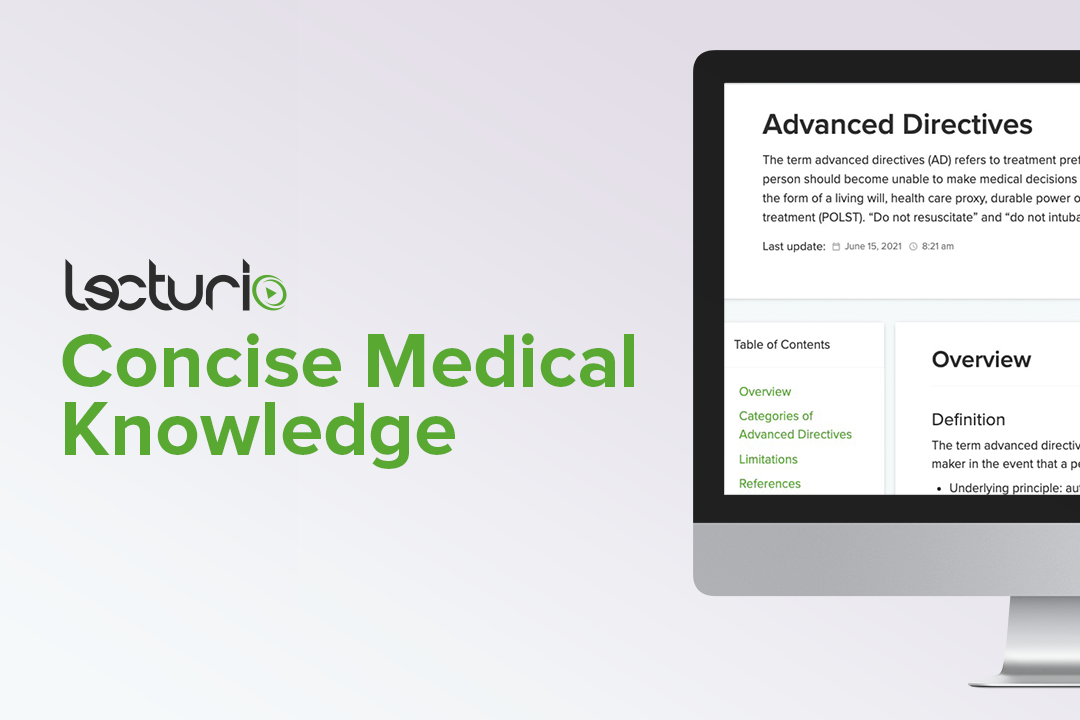Playlist
Show Playlist
Hide Playlist
Problems with Advance Directives
-
Slides Problems with Advance Directives.pdf
-
Download Lecture Overview
00:01 I talked a little bit before about concerns or problems with advanced directives. 00:06 The idea of authenticity, the fact that patient preferences may change over time. 00:12 So, you know, now when you're healthy and feeling well, and envisioning yourself in the future in a particular health condition, you might make different decisions once you're down that road and have faced other decisions. 00:26 So, patient preferences may change. 00:29 Again, this is an opportunity to have ongoing goals of care discussions, as the patient's condition might change, their preferences might change. 00:38 Also, the concerns with advanced directives are maybe surrogates. 00:42 We'll have a difficult time of really figuring out. 00:45 The patient thought about these situations in the hypothetical, but now presented with this in the future. 00:51 I as the surrogate, I as the proxy decision maker have to make decisions. 00:55 They may have a difficult time of figuring out exactly what the patient would have wanted. 01:01 There has been literature to show that advanced directives may not actually be available at the time that they are needed. 01:07 This is an important, you know, fault in the healthcare system that making sure that when the patient fills out a document, that it gets linked to their medical record in some way. 01:17 Electronic medical records make that more accessible. 01:20 But we need to make sure that at the time of care when they are needed, when we need to refer to the Advanced Directive, that they're available to the patient, to their loved ones, to the healthcare team members taking care of them. 01:35 As I mentioned, Advanced Directive language has its own difficulties. Needs required some interpretation. 01:43 It might be either too prescriptive, it really narrows down the choices that are available for a surrogate decision maker to make, or they're going to be too vague and really not really provide guidance. 01:53 And figuring out what would be consistent with goal can coordinate care for the patient. 02:00 It's also possible that, at the time that you're going to need these advanced directives, there may be other factors that have more influence on the treatment decisions that are being made rather than the language that's contained in the advanced directive. 02:13 So there may be financial pressures, you know, the cost of the hospital bill might be a more of a factor for how the patient or their surrogate decision maker is going to make decisions. 02:23 Their proxy decision makers emotions in the moment, having to step in and be the decision maker that might have more influence on how they make decisions than what's in an Advanced Directive. 02:35 There may also be differences in how the clinicians, their practice patterns, influence the decisions that are made or how they present information to a proxy decision maker.
About the Lecture
The lecture Problems with Advance Directives by Mark Hughes, MD, MA is from the course Breaking Serious News and Advance Care Planning.
Included Quiz Questions
What are the potential problems with advance directives? Select all that apply.
- Patient preferences may change over time.
- Advance directives may not be available at the time they are needed.
- The language may be too vague.
- The healthcare team may not be familiar with advance directives.
- The advance directive may be illegible.
Customer reviews
5,0 of 5 stars
| 5 Stars |
|
5 |
| 4 Stars |
|
0 |
| 3 Stars |
|
0 |
| 2 Stars |
|
0 |
| 1 Star |
|
0 |




